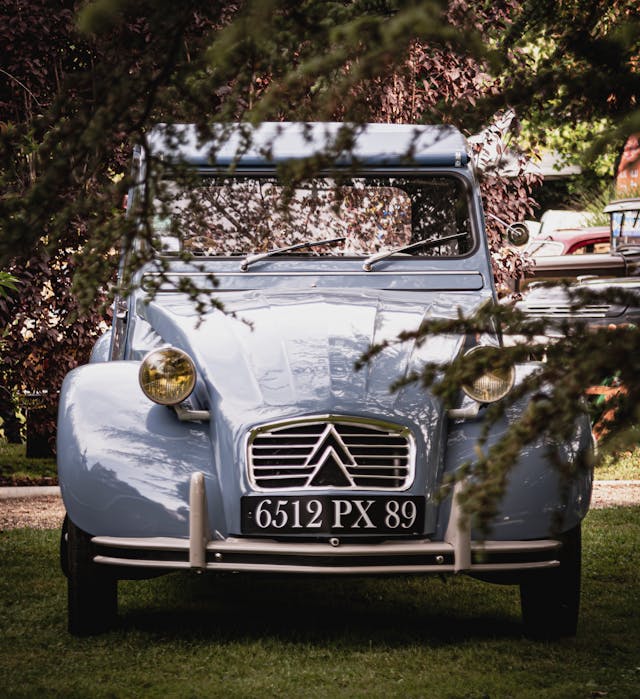Auto History Club Events and Meetups
In the domain of automotive history, club events and meetups stand as a cornerstone for enthusiasts and experts alike to come together, exchange knowledge, and celebrate the evolution of automotive craftsmanship. From local gatherings to international exhibitions, these events not only showcase an array of classic vehicles but also foster a unique community of collectors, restorers, and historians. The fascinating question then arises: what makes these events so enthralling, and how do they contribute to the preservation and appreciation of our automotive heritage?

Key Takeaways
- Auto history clubs host regular meetups and events to discuss classic vehicles and their historical context.
- Community-driven events like car shows, often held locally, showcase the evolution of vehicles and celebrate automotive heritage.
- National events draw enthusiasts from across the country, featuring vintage car shows and educational platforms on automobile technology progression.
- International exhibitions provide a global platform for showcasing vintage cars, connecting international enthusiasts, and highlighting technological advancements.
- Notable events include the Goodwood Revival Event in the UK, and the Hershey Antique Auto Show in the US, both of which offer immersive experiences and networking opportunities.
Understanding Auto History Clubs
In the world of automotive enthusiasts, Auto History Clubs hold a unique and significant place. These clubs are the embodiment of a shared passion for auto heritage, classic vehicles, and the rich history that underpins the evolution of automobile technology.
Auto History Clubs, at their core, are gatherings of individuals who harbor a deep appreciation for automobiles’ historical significance. They are the custodians of auto heritage, preserving and promoting the knowledge of classic vehicles’ design, engineering, and societal impact. The members of these clubs often possess an encyclopedic knowledge of automobile history, from the rudimentary steam engines of the 1800s to the sleek, high-powered machines of the 20th century.
These clubs host regular events where enthusiasts can explore the rich tapestry of auto heritage, discussing the minutiae of classic vehicles and the broader context of their development. These gatherings are not just social occasions but educational platforms, fostering a deeper understanding of automobile history. By participating in Auto History Clubs, members contribute to the preservation and celebration of an essential aspect of our technological and cultural history.
Local Auto History Meetups
Amidst the hustle and bustle of city life, local Auto History Meetups serve as an oasis for auto history enthusiasts. These gatherings comprise of local car shows and vintage vehicle displays, providing a platform for the community to engage in a shared passion for automotive history.
Local Auto History Meetups are community-driven events that facilitate the exchange of knowledge and stories surrounding the evolution of automobiles. They feature local car shows, which are treasure troves of information, offering a thorough exploration into the rich heritage of automotive innovation. Here, enthusiasts can witness the transformation of vehicles firsthand, from horse-drawn carriages to sleek, modern electric cars.
Moreover, these meetups host vintage vehicle displays that transport enthusiasts back in time. Showcasing an array of meticulously maintained classic cars, these displays serve as living museums, recounting tales of yesteryears and the technological leaps that led us to today’s automotive landscape.
National Auto History Events
Beyond the confines of local communities, National Auto History Events serve as grand stages that celebrate the fascinating journey of automobile evolution on a larger scale. These events, often held annually, showcase an extensive collection of vintage car shows, drawing enthusiasts and collectors from all corners of the nation.
The main objective of these events is not just to display an impressive array of historic vehicles but also to promote the rich automotive heritage that has greatly shaped our society. They explore the intricate details of automobile development, spanning from the era of horseless carriages to the modern age of electric vehicles.
National Auto History Events also serve an educational purpose. They provide a platform for auto history enthusiasts to learn about the industry’s progression – technological advancements, design transformations, and the pivotal role of automobiles in societal evolution.
In essence, these national events are a reflection of the enduring fascination with automotive history. They provide a unique opportunity to appreciate the craftsmanship of yesteryears, understand the technological strides made over the decades, and anticipate the future trajectory of the auto industry, all while celebrating our shared automotive heritage.
International Auto Exhibitions
Branching out from the national events that celebrate the automotive heritage, International Auto Exhibitions elevate the appreciation of automobile history to a global level. These exhibitions serve as a kaleidoscopic platform where the past, present, and future of the automobile world converge.
A key feature of these exhibitions is the electric vehicle showcases. These displays provide a glimpse into the future of automotive technology, highlighting advancements in battery efficiency, charging infrastructure, and design aesthetics. It’s an eye-opening experience for enthusiasts, as they gain a thorough understanding of the evolution of electric vehicles, from the early prototypes to the cutting-edge models on the market today.
Equally engaging are the vintage car displays, which take attendees on a nostalgic journey back in time. Pristine models of iconic vehicles, often restored to their original glory, offer a tangible link to the past. They allow attendees to witness firsthand the chronological progression of automotive design, from the simplicity of the early 20th century automobiles to the complex, technologically advanced machines of today.
Benefits of Auto History Gatherings
While many may view auto history gatherings as mere entertainment, these events offer substantial benefits beyond the spectacle. One of the most significant advantages entails networking opportunities. These events attract a diverse crowd of enthusiasts, collectors, restorers, and historians, fostering a platform for interaction and connection.
Such networking opportunities can lead to productive relationships, potential partnerships, and even career opportunities for those passionate about automotive history. For example, it is not uncommon for attendees to meet authors of auto history books or designers of celebrated classic cars, thereby opening doors to exclusive industry insights.
Another key benefit of these gatherings is the facilitation of knowledge sharing. The concentrated pool of auto history enthusiasts creates an environment ripe for learning. It’s a gathering of people who share a common interest, yet bring different experiences and knowledge. In this way, these events foster a culture of learning, where one can deepen their understanding of automotive history, from the evolution of car designs to the impact of technology on automotive innovation.
Tips for Attending Auto Meetups
Maneuvering the bustling environment of auto meetups can initially seem intimidating, but with a few practical tips, you can maximize your experience. A deep understanding of car culture is the cornerstone of these events. It’s crucial to familiarize yourself with the different subcultures, trends, and historical significance of the cars on display.
Networking strategies play a pivotal role in attendee engagement. Prior to the event, research the attendees, clubs, and companies involved. This will provide you with a knowledge base to initiate meaningful conversations. Remember, business cards are still a staple in these environments. Be prepared to exchange contact information with potential collaborators, enthusiasts, or even future employers.
Maintaining a respectful attitude towards others and their automobiles is non-negotiable. Each car, regardless of its age or model, represents the personal investment and passion of its owner. A simple compliment or a well-articulated question can open doors to enriching interactions.
Lastly, embrace the learning opportunities. Auto meetups are platforms for knowledge exchange. Ask questions, share insights, and absorb as much information as possible. With these tips, you can navigate the event with confidence, enriching your experience and expanding your network.
Highlighted Auto History Events
A myriad of auto history events dot the calendar year, each offering a unique glimpse into the evolution of automotive technology and design. These events, frequented by enthusiasts and historians alike, provide a platform for the appreciation of vintage vehicles, an integral part of the industry’s past.
Notable among these are classic carshows. The Pebble Beach Concours d’Elegance, for instance, is a prestigious event that showcases the world’s most extraordinary vintage vehicles. It offers an unparalleled opportunity to study the intricate craftsmanship and innovative technologies that characterized different automotive eras.
Similarly, the Goodwood Revival in the UK is a must-visit event. It goes beyond displaying classic cars to recreating the golden age of motorsports, offering a truly immersive experience.
Lastly, the Hershey Antique Auto Show in Pennsylvania, known as the largest antique car show in America, is a treasure trove of automotive history. It features an extensive array of vintage vehicles, with a focus on pre-war and post-war classics.
These highlighted events are more than just gatherings – they are educational platforms that foster a deeper understanding of automotive history and design evolution. A visit to any of these is a journey through time, a reflection of the indomitable spirit of human innovation.
